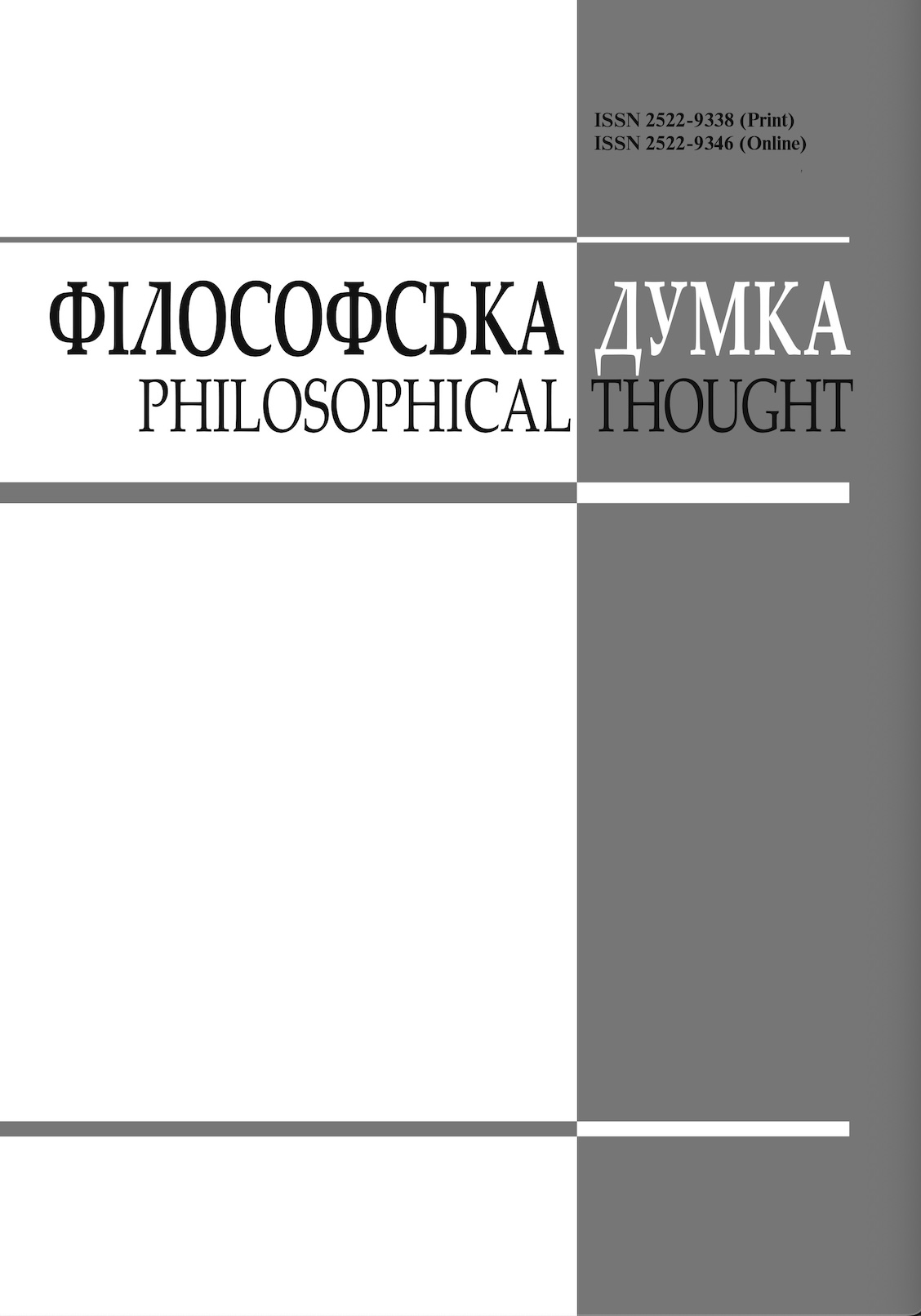ALIENATION OF RATIONALITY: THREATS, CHALLENGES AND THINKING POSTHUMANISM
DOI:
https://doi.org/10.15407/fd2024.04.053Keywords:
alienation, rationality, artificial intelligence, technologyAbstract
The article is devoted to the problem of artificial intelligence and the challenges of “smart technologies”, which threaten the autonomy of human mind and the existence of human itself. The author states the crisis situation of contemporary culture, the existential fatigue of humanity, which manifests itself in the intention to delegate one’s own subjectivity, will and rationality to external actors – namely the Internet, artificial intelligence, and robotics. The article discovers the alienation of the fundamental quality of a thinking person – intelligence – and the threat of human enslavement in the world of the near future, governed by autonomous technologies. In addition to delegating rationality to machines, there is also a tendency to transfer goal-setting to “intelligent technology”, which is gradually endowed with the ability for self-learning and self-programming, and therefore may not align its tasks with human intentions. This problem is traced back to the origins of philosophical thinking and the earliest mentions of artificial beings in mythology, theology, fiction and scientific theory, that proves eternal human strife for creation and replication of human traces in natural environment. Humanization and rationalization of outer world thus is thought as an integral feature of human activity, but it also means constant and continuing alienation of human mind due to its openness and incompleteness, that puts mankind at risk – yet therefore defines humanity as a “risky” way of being. The author considers a scenario of the doubling of reality, in which digital algorithms, computer programmes and robotics may conquer, supplant or replace the world of nature and the human world, bypassing the latter as a less effective evolutionary step. In contrast to this, the author raises the question of what is mind, what is thinking and what is a human being – and whether consciousness, reduced to corporeality, sensuality or rationality, can serve as a model for reproduction. And whether a person is capable of creating a new life without love?
References
Clarke, A. (1968). 2001: A Space Odyssey. New York: Signet.
Debord, G. (1992). La Société du spectacle. Paris: Gallimard.
Descartes, R. (2000). Méditations métaphysiques. [In Ukrainian]. Kyiv: Universe.
Hegel, G. (2004). Phänomenologie des Geistes. [In Ukrainian]. Kyiv: Osnovy.
Heidegger, M. (2000). Gesamtausgabe. I. Abteilung: Veröffentlichte Schriften 1910–1976. Band 7: Vorträge und Aufsätze. Frankfurt am Main: Vittorio Klostermann.
Huxley, A. (1968). Brave New World. New York: Bantam Books.
Jünger, E. (2014). Der Arbeiter. Herrschaft und Gestalt. Stuttgart: Klett-Cotta.
Jünger, E. (2017). Gläserne Bienen. [In Ukrainian]. Kyiv: Zhupanskyi Publisher. Kerényi, K. (1950). Labyrinth-Studien. Labyrinthos als Linienreflex einer mythologischen Idee. Zürich: Rhein-Verlag.
Lagin, L. (1956). Old Khottabych. [In Ukrainian]. Kyiv: Molod.
Materials of the all-Ukrainian scientific and practical conference “Anthropic principle in the context of the current problems of philosophy of science”. (2016). [In Ukrainian]. Lviv: Danylo Halytskyi Lviv National Medical University.
Meyrink, G. (2011). Der Golem [In Ukrainian]. Lviv: Piramida.
Nietzsche, F. (1993). Also sprach Zarathustra. Der Wille zur Macht. [In Ukrainian]. Kyiv: Osnovy.
Shelley, M. (2010). Frankenstein, or The modern Prometheus. New York: Fall River Press.
Wells, H. (2017). The Time Machine. [In Ukrainian]. Kharkiv: Folio.
Downloads
-
PDF (Українська)
Downloads: 136
Published
How to Cite
Issue
Section
License
Authors who publish with this journal agree to the following terms:
- Authors retain copyright and grant the journal right of first publication.
- Authors are able to enter into separate, additional contractual arrangements for the non-exclusive distribution of the journal's published version of the work (e.g., post it to an institutional repository or publish it in a book), with an acknowledgement of its initial publication in this journal.
- Authors are permitted and encouraged to post their work online (e.g., in institutional repositories or on their website) prior to and during the submission process, as it can lead to productive exchanges, as well as earlier and greater citation of published work (See The Effect of Open Access).


